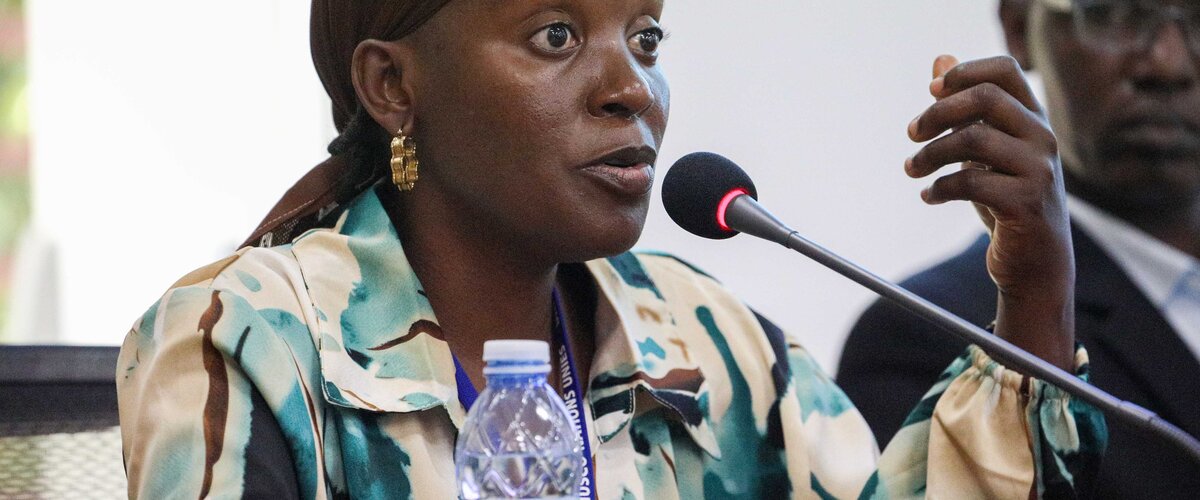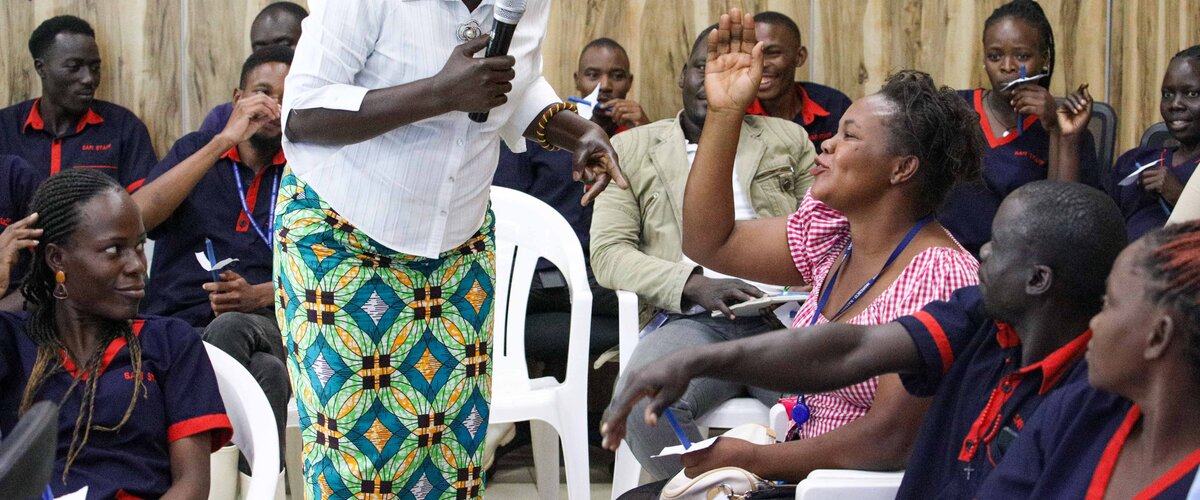Ending HIV Stigma: RSCE and MONUSCO Mark World AIDS Day 2024 in Entebbe
When was the last time you took an HIV test? This poignant question set the tone for an event held at the Regional Service Centre Entebbe (RSCE) on Monday, 2 December, to mark World AIDS Day 2024. The event emphasized this year’s theme: “Take the Rights Path”, highlighting the global fight against HIV/AIDS through moving speeches, interactive activities, and an inspiring personal testimony.
Speaking on the theme, organizer and HIV/AIDS Officer Yusuf Kaggwa, remarked, “It’s about viewing your health as your right. Many people assume that HIV is no longer a threat, but colleagues, HIV is still around. We all have a responsibility to protect ourselves, our families, and our community.” Noting Entebbe’s position in the UN system, Mr. Kaggwa revealed, “Our duty station consumes a fairly high number of Post-Exposure Prophylaxis (PEP) kits. This is actually a positive indicator, as it shows people are sensitized enough to take preventive measures.”
The event featured several key moments, beginning with delivery of messages from global leaders. Dr. Rumongi Gakwaya on behalf of the Chief Entebbe Support Base Mr. Yury Cherep, presented the UNAIDS Executive Director’s message, underscoring the critical role of human rights in ending AIDS by 2030. “Ending AIDS requires that we reach and engage everyone who is living with, at risk for, or affected by HIV,” Gakwaya stated. “Gender equality is an essential element of an approach to AIDS that is grounded in human rights. Laws, policies, and practices that punish or stigmatize people obstruct access to HIV prevention, testing, treatment, and care.”
Paulin Djomo, RSCE Director, read the UN Secretary-General’s message, reflecting on the progress made in combating AIDS while acknowledging persistent challenges. “Since 2010, the number of children infected through mother-to-child transmission has dropped by half, and fewer people die of AIDS-related causes each year. Yet, gains remain fragile. Supporting young, vulnerable, and marginalized people will change the course of the epidemic,” he emphasized.
A highlight of the event was the powerful testimony of Ms. Halimah Nakato, affectionately known as “Hamah,” an HIV/AIDS advocate and social media influencer. Sharing her journey, Halimah recounted the challenges of receiving her diagnosis, facing stigma, and battling both physical and mental health struggles. “Acceptance heals everything,” she declared. “My sickness can’t define me. Coming out on social media was not easy, but it gave me the strength to fight stigma and support others.” Halimah stressed the importance of adhering to treatment, stating, “If you take your medication, it works very well. Your viral load can become undetectable to levels where you can’t transmit the virus to a negative partner.” She also issued a strong warning: “Don’t let anyone advise you to stop taking your medication as prescribed!”
The event concluded with a candle-lighting ceremony, an interactive quiz, and the cutting of a commemorative cake. The Director of the RSCE urged the audience to carry forward Halimah’s message, noting the critical role of collective action and support in ending the stigma surrounding HIV/AIDS.
 UN
UN United Nations Peacekeeping
United Nations Peacekeeping






